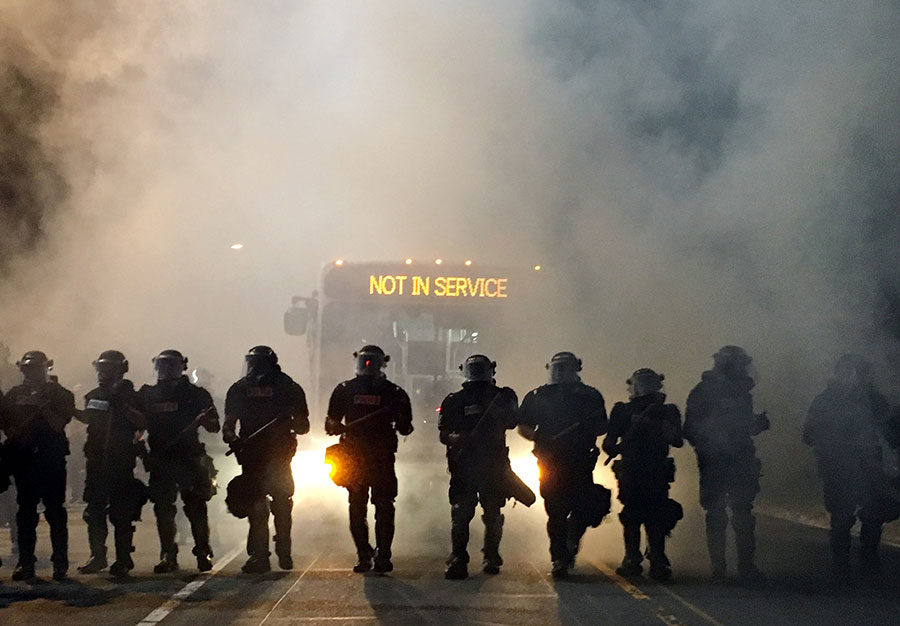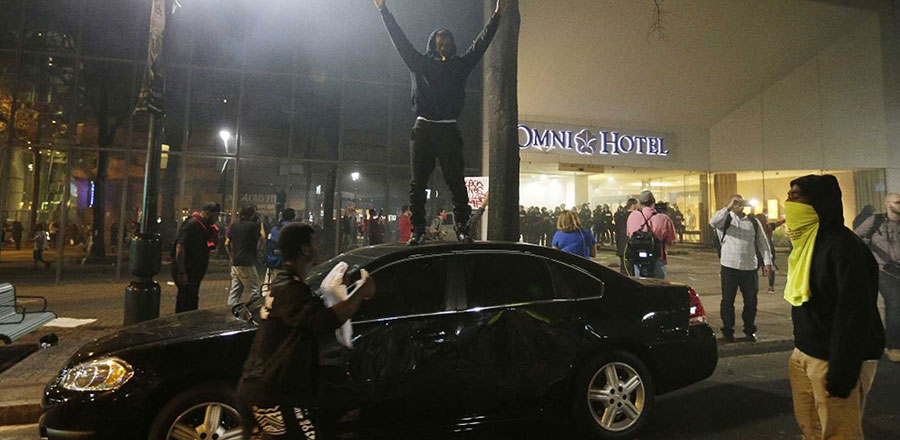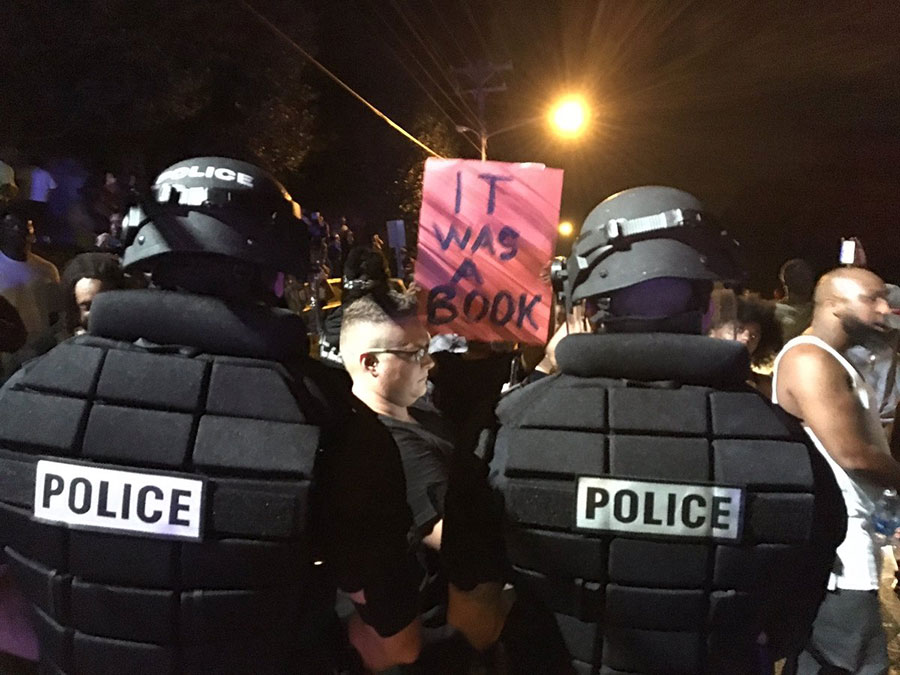North Carolina Governor Pat McCrory declared a state of emergency on Wednesday, releasing state troopers and the National Guard into the streets after another night of violent demonstrations in the cities of Charlotte and Tulsa.
A protest of hundreds became bloody when the sun set after demonstrators wanted to enter the lobby of an upscale hotel that was full of riot police officers. The officers responded by using tear gas, and immediately afterward a gunshot was heard, and an unidentified man was found shot near the hotel entrance. The unnamed man was taken to a nearby hospital with life threating injuries.

The beginning of the new wave of protests
On Tuesday afternoon, a man identified as Keith Lamont Scott, African-American, physically challenged, and aged 43 was fatally shot at a housing complex in Charlotte, North Carolina. This sparked a new series of protests across the state that started peacefully but suddenly turned violent, with incidents of arson and looting.
By Wednesday night, demonstrators had started fires, destroyed hotels’ windows, and looted stores. There were many people injured, and at least two civilians and seven police officers had to be taken urgently to a nearby hospital.
The situation in Tulsa
On Friday, Terence Crutcher, another African-American aged forty was shot and killed by police officer Betty Shelby, who claimed he “refused to follow more than twenty-four commands.” This also angered black citizens, who are calling for the police officer to be fired.
The White House stated that President Obama had called the mayors of both cities to “pledge help.” As of September 2016, police officers have killed more than seven hundred people, including 163 black men.

Public rhetoric and opinions
Some people believe the death toll has been stoked after black police officers in Baton Rouge, and Dallas were killed. In the highly controversial presidential election, each candidate has promised to solve the constant incidents.
So far, Charlotte police have maintained its hypothesis that Scott had a gun on him, and was an “imminent deadly threat” to police officers, giving no other option but to shoot him. Nonetheless, his family insists that he was unharmed, and was reading a book at the time of the shooting while waiting to pick up his son from school.
Apparently, law enforcement officers were looking for a suspect when they saw armed Scott leave his car. Charlotte-Mecklenburg Police Chief Kerr Putney has stated Scott was given various explicit commands that he refused to follow. He also said the officers did not recover any gun at the shooting scene.
“It’s time to change the narrative, because I can tell you from the facts that the story is a little bit different as to how it’s been portrayed so far, especially through social media,” claimed Putney.
Putney also stated the officer that shot was wearing civilian clothes, but was accompanied by his colleagues in full uniform, which were using body cameras. However, this footage will not be released until the ongoing police investigation is complete.
A controversial new state law
A recently passed state law will prohibit police stations from releasing body camera footage without a court order, which has angered even more citizens.
According to Mike Meno, spokesman for the American Civil Liberties Union of North Carolina, Nort Carolina is taking backward steps over time, becoming less transparent. Nonetheless, Charlotte Mayor Jennifer Roberts did not agree with Meno and claimed she already asked Putney to show her the video.
This new law that will be effective on October first is the newest controversy regarding civil rights and law enforcement. In the past few months, protests regarding fatal shootings of African-Americans have become familiar.

Anger against the treatment given to police officers
Even more surprising, the police agency has identified the officer who killed Scott, and who turns out is also black. His name is Brentley Vinson, and he has been with the Charlotte-Mecklenburg police force for a little over two years.
Following the incident, Vinson has given paid administrative leave until the police investigation is complete.
“I think what we went through with Kerrick here in Charlotte, even though it wasn’t as explosive, I believe that weathered on us. What happens is that nine times out of 10, the cop will get off. He’ll get paid leave. He’ll get early retirement. He’ll get paid for the killing. Nothing is being done to change anything. What you’re seeing is people have been put in that situation for so long, and they’re tired of talking. They’re sick of talking and talking and candlelight vigils and dialogue and nothing getting done,” has claimed Jibril Hough, a local activist.
Past incidents
On September 2013, police officers in Charlotte opened fire against Jonathan Ferrell, an African-American aged 24. Ferrell received ten bullets from over twelve rounds, in a neighbor close from Scott’s shooting place.
This became a hugely publicized trial against the officer who fired, Randall Kerrick. In 2015 the jury deadlocked, and afterward, the lawsuit was settled with more than two million dollars, according to reports, something that left many feeling justice had not been done.
Sources: The Washington Post
